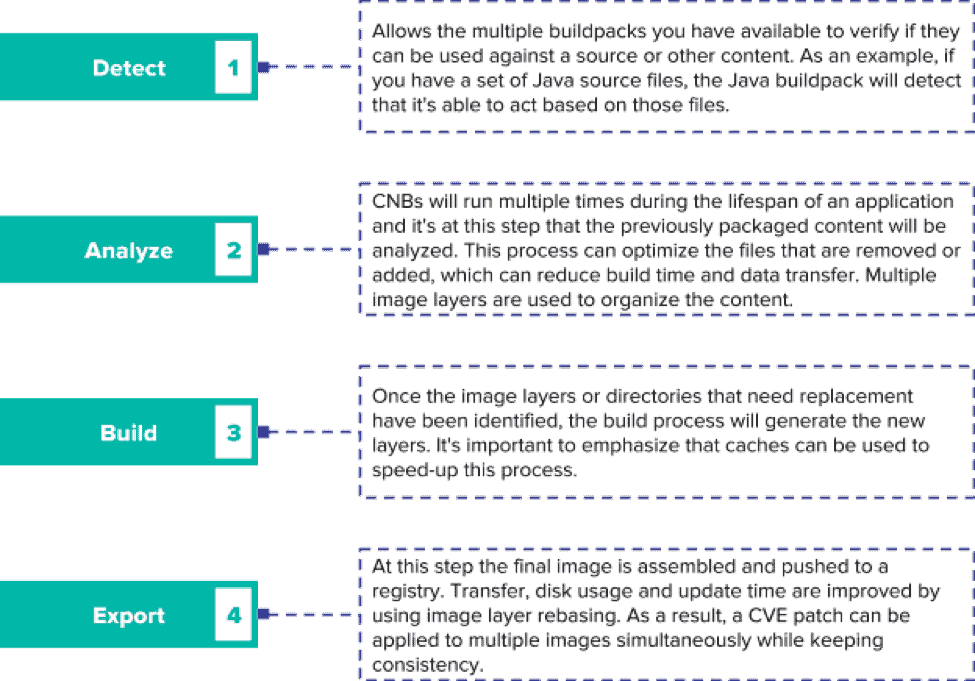Today, the Cloud Native Computing Foundation (CNCF) accepted Cloud Native Buildpacks (CNB) into the CNCF Sandbox for early stage and evolving cloud native projects.
The CNCF Sandbox is a home for early stage projects; for further clarification around project maturity levels in CNCF, please visit our outlined Graduation Criteria.
Buildpacks are pluggable, modular tools that translate source code into container-ready artifacts by providing a higher-level abstraction compared to Dockerfile. In doing so, they provide a balance of control that minimizes initial time to production, reduces the operational burden on developers, and supports enterprise operators who manage apps at scale.
Based on experience in maintaining production-grade buildpacks from both Pivotal and Salesforce Heroku, CNB was built to provide a platform-to-buildpack API contract that takes source code and outputs Docker images that can run on cloud platforms supporting OCI images.

“The next generation of cloud native buildpacks will aid developers and operators in packaging applications into containers, allowing operators to efficiently manage the infrastructure necessary to keep application dependencies updated,” said Stephen Levine, engineer and product manager at Pivotal. “We hope the inclusion of CNB in the CNCF sandbox will further improve interoperability between platforms and attract a wide community of contributors, including buildpack creators and maintainers.”
Buildpacks were first conceived by Heroku in 2011. Since then, they have been adopted by Cloud Foundry as well as Gitlab, Knative, Deis (now Microsoft), Dokku, and Drie.
“Anyone can create a buildpack for any Linux-based technology and share it with the world. Buildpacks’ ease of use and flexibility are why millions of developers rely on them for their mission critical apps,” said Joe Kutner, architect at Heroku. “Cloud Native Buildpacks will bring these attributes inline with modern container standards, allowing developers to focus on their apps instead of their infrastructure.”
The TOC sponsors of the project are Brian Grant and Alexis Richardson.